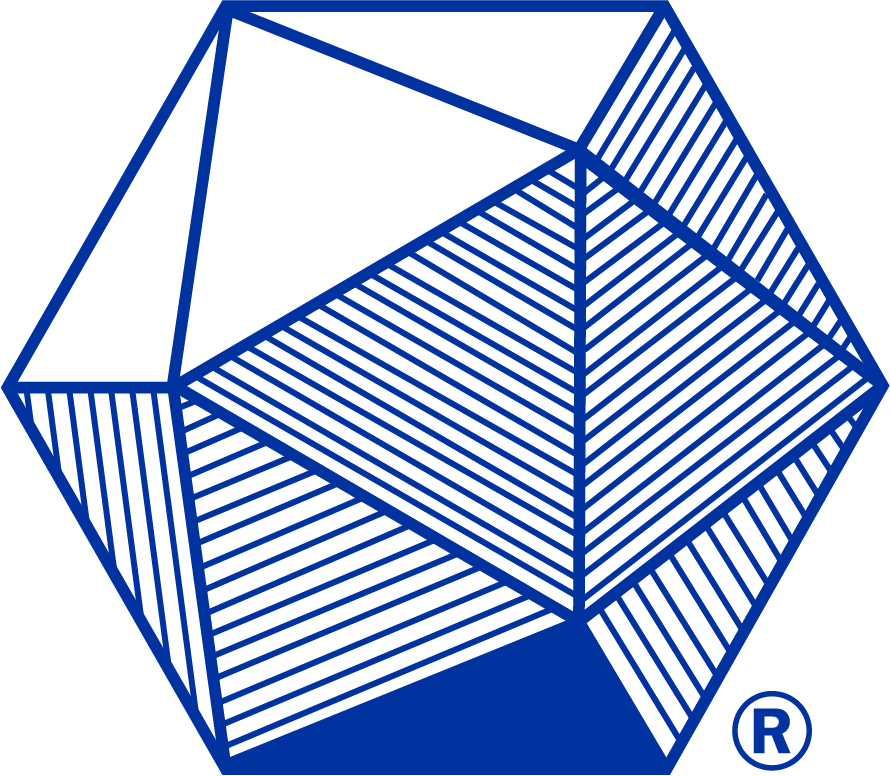Saturday – Apr 20
Location: Fenton Hall, Room 153
Note: Session Chair - Gordon Craig
-
- Time:
- 12:45 pm – 1:15 pm
- Title:
- Understanding Social Network Dynamics through Spatial Modeling
- Speaker:
- Shandeepa Wickramasinghe (Utica University)
Abstract
The study of social networks, including the geographical location of people and how they are connected to one another, is currently a hot topic of interest because of its immediate relevance to important applications. These applications range from developing efficient immunization techniques to combat epidemics, designing better transportation and city planning paradigms, and understanding how rumors and opinions spread and take shape over time. In this talk, we will present a Social-Spatial Network model, which we developed to capture essential structural features of social networks, including heavy-tail degree distribution and high clustering, as well as the spatial location of individuals that reproduces the principle of a rank-size rule observed in city population distribution. Join us to discover the importance of social networks! No prior graph theory knowledge is needed.
-
- Time:
- 1:20 pm – 1:50 pm
- Title:
- Studying a minimal, yet impactful, form of feedback
- Speakers:
- Deborah Moore-Russo (University of Oklahoma), Lora Park (University at Buffalo) Brian Rickard (University of Arkansas)
Abstract
Although many college students intend to have a STEM major, dropout from these fields is high, especially among members of underrepresented groups. We propose a minimal, yet potentially powerful, intervention to broaden participation in STEM: giving positive feedback to students in STEM. Studies 1 and 2 found that giving positive feedback is less normative in math (vs. English) courses, and instructors’ feedback-giving practices and students’ experiences mirror these norms. However, students who received positive (vs. objective) feedback on introductory-level college calculus exams showed greater belonging and self-efficacy in math, which predicted better STEM outcomes (i.e., increased interest in STEM and higher final math course grades, respectively, Study 3). These findings were especially strong for racial-ethnic minority students.
-
- Time:
- 1:55 pm – 2:25 pm
- Title:
- Quantifying Gerrymandering Using the Efficiency Gap: Compelling Evidence or Gobbledygook?
- Speaker:
- Ryan Gantner (St. John Fisher University)
Abstract
In the United States, there have been numerous recent news items about political districts that have been gerrymandered: nefariously drawn for the benefit of one group, usually a political party. Litigation has produced a wide variety of results, partly stemming from a lack of clear way to objectively quantify the extent to which a (set of) district(s) has been gerrymandered. One metric that has been proposed is the efficiency gap. In this talk, we’ll introduce the audience to the idea of the efficiency gap and mention how it has been used in arguments before various courts. We’ll then take a closer look at its ramifications. These include a surprising, and not entirely desirable, relationship between vote share and seat share. Relaxing some unrealistic assumptions makes the waters even murkier, producing all kinds of undesirable results. Examples will be given and – worse – recipes will be shared for how to concoct Gerry-monsters which have small efficiency gaps. This presentation is aimed at people who have no background in this area. Very little specialized mathematics is required, so it should be accessible to all.
-
- Time:
- 2:30 pm – 3:00 pm
- Title:
- Building the World’s Slowest Computer
- Speaker:
- Olympia Nicodemi (SUNY Geneseo)
Abstract
A recent article in Quanta Magazine was entitled “How to Build an Origami” computer. We’ll try it! We will “fold” a NAND gate and share the patterns for other logical gates. Then we will look at a more complicated logical function, Wolfram’s Rule 110, and its implications. The talk will be student friendly.
Saturday – Apr 20
Location: Fenton Hall, Room 154 Room 170
Note:
Room Change: Now in Room 170
Session Chair: Cesar Aguilar-
- Time:
- 12:45 pm – 1:15 pm
- Title:
- Sufficiency, Rao-Blackwellization, and the German Tank Problem
- Speaker:
- James Marengo (RIT)
Abstract
Suppose that you are an American soldier fighting against the Nazis in World War II. The Germans have an unknown number theta of tanks that are numbered from $1,2,…,\theta$. From a foxhole, you watch German tanks roll by and you write down the number that is clearly displayed on each tank. You stop after observing $n$ such numbers and you want to use them to estimate $\theta$ in an optimal way. A sufficient statistic is one which summarizes data without losing information about the underlying population from which the data are sampled. The Rao-Blackwell theorem is a key tool for finding optimal estimators which has a fascinating geometric interpretation and which plays a major role in the modern theory of machine learning. In this talk, we will show how these powerful tools can be used to optimally estimate $\theta$. The talk should be accessible to any student who has had a calculus-based course in probability or statistics.
-
- Time:
- 1:20 pm – 1:50 pm
- Title:
- Digital Image Processing in College Mathematics
- Speaker:
- Yevgeniy Galperin (East Stroudsburg University of PA)
Abstract
We discuss the use of basic and advance digital image processing methods to provide meaningful context for reviewing key topics of the college mathematics curriculum, to help students gain confidence in using concepts and techniques of applied mathematics, to increase student awareness of recent developments in mathematical sciences, and to help students prepare for graduate studies.
-
- Time:
- 1:55 pm – 2:25 pm
- Title:
- Leaning In to Neutral Geometry
- Speaker:
- Julia Wilson (SUNY Fredonia)
Abstract
We describe an axiomatic framework for neutral, Euclidean, and hyperbolic geometry with some interesting distinctive features, such as a generous infusion of point set topology; a neutral proof of the Jordan Curve Theorem; and neutral treatments of parallelism, constructions, and planar transformations. We also showcase some materials for using this in the college geometry classroom.
Saturday – Apr 20
Location: Fenton Hall, Room 158 Room 180
Note:
Room Change: Now in Room 180
Session Chair: Jack Graver-
- Time:
- 12:45 pm – 1:15 pm
- Title:
- Arithmetical structures and their critical groups
- Speaker:
- Joel Louwsma (Niagara University)
Abstract
An arithmetical structure on a finite, connected graph without loops is given by an assignment of positive integers to the vertices such that, at each vertex, the integer there is a divisor of the sum of the integers at adjacent vertices, counted with multiplicity if the graph is not simple. Associated to each arithmetical structure is a finite abelian group known as its critical group, which may be regarded as a generalization of the sandpile group of a graph. We present results about the groups that occur as critical groups of arithmetical structures on star graphs, complete graphs, and trees. These results are joint work with subsets of Kassie Archer, Abigail Bishop, Alexander Diaz-Lopez, Luis Garcia Puente, and Darren Glass.
-
- Time:
- 1:20 pm – 1:50 pm
- Title:
- Why Define the Real Numbers?
- Speaker:
- Gary Towsley (SUNY Geneseo)
Abstract
Reading the 1872 paper by Dedekind in which he defines the Real Numbers using (Dedekind) cuts, led me to explore the work of both Cantor and Dedekind on the Real Numbers and on Set Theory.
-
- Time:
- 1:55 pm – 2:25 pm
- Title:
- Another slice of $\pi$
- Speakers:
- Hossein Shahmohamad (RIT), Hamzeh Alidadi
Abstract
The ratio of a circle's circumference to its diameter is one of the most fascinating numbers. After a brief history of this transcendental number, a new fast-converging approximation of nested square roots whose limit is $\pi$ is presented.
-
- Time:
- 2:30 pm – 3:00 pm
- Title:
- A Sequence of Greatest Common Divisors
- Speaker:
- Timothy Ferdinands (Alfred University)
Abstract
For relatively prime positive integers $u$ and $v$ and a prime number $p$ we consider the expansion of \[ ( u+\sqrt[p]{v})^n = a_0 + a_1 v^{1/p}+ a_2 v^{2/p}+ \cdots + a_{p-1}v^{(p-1)/p} \] where $a_0, a_1, \dots, a_{p-1}$ are integers. We examine patterns in these coefficients for different prime number $p$ and compute the greatest common divisor of these coefficients as a function of $n$.
Saturday – Apr 20
Location: Fenton Hall, Room 159
Note: Session Chair: Brad Emmons
-
- Time:
- 12:45 pm – 1:15 pm
- Title:
- On the Leaning Towers of Powers (Iterated Exponents)
- Speaker:
- Hossein Behforooz (Utica University)
Abstract
In the real analysis and number theory courses, the study of the Continued Radicals and Continued Fractions are very popular and interesting subjects. But there is less attentions to Continued Exponents. In this short talk we will present some notes on the calculation of the continued radicals and iterated exponents with integer elements and integer values by using splitting of the integers in a certain way which are very bizarre and interesting approaches. Since the time of the lecture is short I promise to state the theorems without proofs. That will change my presentation from theoretical approach lecture to a fun and amusement type of lecture. Yes, this talk is understandable to undergraduate students. Come and join us and have fun. MATH is FUN.
-
- Time:
- 1:20 pm – 1:50 pm
- Title:
- Two-Player Games on Knot and Link Diagrams
- Speaker:
- Adam Giambrone (Elmira College)
Abstract
Over the past decade, numerous two-player games on knot and link diagrams have been created and explored. For these turn-based games, each player has a separate goal to achieve in order to win the game. In this general audience talk, we will introduce two examples of such games—the Linking-Unlinking Game and the Single Smoothing Per Twist Game—and will share results about winning strategies for these games. Work on these games came out of two separate undergraduate research projects, the first with Jake Murphy and the second with James Blair. The main goal of this talk is to promote the study of two-player games on knot and link diagrams as a rich source of undergraduate research projects since students and faculty can quickly get into creating their own games and looking for winning strategies.
-
- Time:
- 1:55 pm – 2:25 pm
- Title:
- The Mean Value Theorem According to Pompeiu
- Speaker:
- Gabriel Prajitura (SUNY Brockport)
Abstract
D. Pompeiu wrote many papers about various approaches to prove and extend the Mean Value Theorem. We will discuss some of his ideas.

